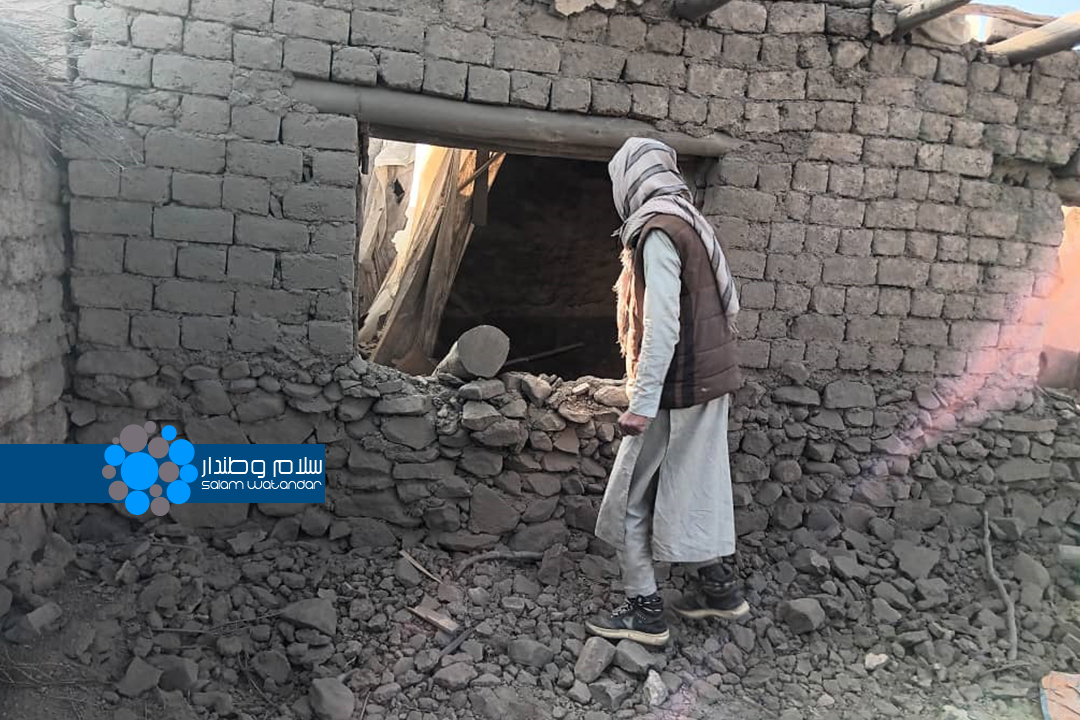On the night of Tuesday, the villages of Laman, Margha, Suzghami, and other parts of Barmal district in Paktika province of Afghanistan, were relentlessly bombarded by Pakistani fighter jets shattering the silence of the night, turning homes built with love and hope into ruins filled with debris and sorrow.
The Pakistan Army carried out airstrikes on several areas in the Barmal district on the night of December 24. Among the casualties are many civilians, and in some cases, families have been unable to recover the bodies of their loved ones, with some victims buried under rubble.
The United Nations Children’s Fund (UNICEF) has reported that at least 20 children lost their lives as a result of airstrikes carried out by the Pakistan Army on Paktika province of Afghanistan.
On Thursday, December 26, Sanjay Wijesekera, UNICEF’s Regional Director for South Asia, expressed condolences to the victims’ families in a message posted on his X account, stating, “Children are never and should never be the target.”
The United Nations Assistance Mission in Afghanistan (UNAMA) also confirmed receiving credible reports indicating that dozens of civilians, including women and children, were killed in the airstrikes on various areas of Paktika.
UNAMA emphasized that international law obligates military forces to take all necessary precautions to prevent harm to civilians, ensuring a distinction between civilians and combatants during operations. The mission stressed the need for an investigation to ensure accountability, prevent recurrence, and protect the rights of the victims.
Eyewitness accounts, devastation and calls for justice
Amid the wreckage in the devastated area, the cry of a child can be heard. Mohammad, a seven-year-old boy who is the only survivor of his family, tearfully recalls: “We were sleeping when the sound of jets came. Our home was bombed. I lost my mother, father, sister, and all the other members of my family. Now, I am all alone.” His voice echoes the pain and suffering of a generation that has become a casualty of endless violence.

In Suzghami, a house that once echoed with children’s laughter is now nothing but a pile of rubble. Torn clothes, dusty books, and broken belongings testify to the lives that are no more. In Laman, a mosque that once provided refuge for prayer and peace now lies buried under the debris. Higher up, in the mountains, a family of 16 was targeted in an airstrike, and only one person survived this tragedy.
Samargul, a resident of Laman, recounts the horrific event with a lump in her throat: “Sixteen people lived here; women and children were innocent. Now only one person remains. We call on international bodies to stop these atrocities.”
The tragedy in Barmal has left many families grieving, as countless others in the four villages targeted by Pakistani jets are now mourning their loved ones. The airstrikes have torn apart families, and the survivors are left to cope with the overwhelming loss.
Two other residents of Barmal district, Bawel Khan and Asghar, who were eyewitnesses to the airstrikes, shared their harrowing accounts of the attack.
Bawel Khan said, “The bombing that took place at night, killed our women and children, and many others were wounded. We were innocent, but Pakistan cruelly targeted our homes.”
Asghar added, “It was around 8:15 p.m. when Pakistan’s fighter jets arrived and targeted the migrant families from Waziristan here. In this attack, the entire family of a local businessman was killed. Some children are still trapped under the debris.”
The families of the victims are adamant that they had no ties to armed groups and were, instead, “innocent” civilians who were deliberately targeted in Pakistan’s airstrikes.
The people of Paktika, particularly in Barmal, continue to demand justice for the victims, and call on the international community to not remain silent in the face of Pakistan’s actions against the province’s people and hold the country accountable for its actions. “The voices of the survivors of Pakistan’s airstrikes in Barmal must be heard,” they stressed.

Mumtaz Zahra Baloch, spokesperson for Pakistan’s Ministry of Foreign Affairs, described the airstrikes as a targeted operation based on intelligence against security threats in the border areas. However, local residents and victim families maintain that they were non-combatants with no affiliation to armed groups.
The airstrikes have drawn strong reactions from the leadership of the de-facto government of the Islamic Emirate in Afghanistan, which condemned the attacks as “blatant aggression” and warned that “there would be consequences”.
In response to the airstrikes, Amir Khan Muttaqi, the Acting Minister of Foreign Affairs of the Islamic Emirate, urged Pakistan’s rulers to learn from the fate of the former Soviet Union and the United States.
Mr. Muttaqi emphasized that the Afghan people will never tolerate foreign “aggression” and urged Pakistani citizens not to allow their government to gamble with the fate of their country.
He further added that Afghanistan has always stood firm against “foreign invasions” and will never remain silent in the face of outside interference.
Noorullah Noori, Acting Minister of Borders, Ethnicities, and Tribes, along with a delegation from the Ministry of National Defense, traveled to Paktika to assess the situation in Barmal district. Noori assured that efforts would be made to address the needs of the wounded and displaced people.

The de-facto government authorities have promised to take steps for the relief of the victims and provide necessary support for the affected families.
The bombing has become a major point of contention between the two countries and a growing issue of concern for human rights organizations and foreign governments.






